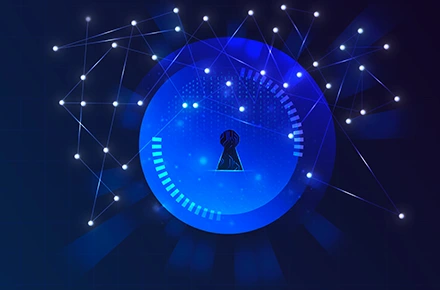Email Address:
contact@unitedtechhelp.com


With the rise of advanced computing technologies like quantum computers, traditional cryptographic methods may no longer be secure enough to protect our sensitive information. This is where you need quantum-resistant cryptography.
Quantum-resistant cryptography is a type of encryption that is designed to withstand attacks from quantum computers.
Quantum computers are super-powerful machines that can solve complex mathematical problems much faster than traditional computers.
These quantum computers pose a potential threat to traditional cryptographic systems because they can break them with their immense processing power.
Traditional cryptographic methods, such as RSA and ECC, rely on the difficulty of certain mathematical problems for their security.
However, quantum computers can quickly solve these problems using algorithms like Shor's algorithm, rendering these encryption methods obsolete.
Quantum-resistant cryptography aims to develop encryption algorithms that are secure against attacks from both classical and quantum computers, ensuring long-term security for sensitive data.
Quantum-resistant cryptography utilizes mathematical principles that are believed to be secure even against quantum attacks.
One approach is to use lattice-based cryptography, which relies on the difficulty of finding the shortest vector in a high-dimensional lattice.
Another approach is to use hash-based cryptography, which relies on the properties of cryptographic hash functions to provide security.
These methods are designed to be resilient against attacks from quantum computers, making them suitable for securing sensitive information in the quantum era.
Future-Proof Security: By adopting quantum-resistant cryptography, organizations can ensure that their data remains secure even as quantum computing technology advances.
Protection of Sensitive Information: Quantum-resistant encryption helps safeguard sensitive information such as financial data, personal records, and government communications from prying eyes.
Continuity of Operations: With quantum-resistant cryptography in place, businesses and governments can continue their operations without fear of data breaches or cyberattacks from quantum adversaries.
Compliance with Regulations: As cybersecurity regulations evolve to address emerging threats, organizations that implement quantum-resistant cryptography can stay compliant with industry standards and regulatory requirements.
Transition Period: Moving from traditional cryptographic systems to quantum-resistant cryptography may require significant time and resources for implementation and testing.
Interoperability: Ensuring compatibility and interoperability with existing systems and protocols can be challenging during the transition to quantum-resistant cryptography.
Education and Awareness: There is a need for educating stakeholders about the importance of quantum-resistant cryptography and its implications for cybersecurity.
Research and Development: Continued research and development efforts are essential for advancing the field of quantum-resistant cryptography and developing new algorithms and protocols.
In an increasingly interconnected world threatened by the emergence of quantum computing, quantum-resistant cryptography services offer a ray of hope for bolstering cybersecurity defenses. By adopting quantum-resistant encryption methods, organizations can protect their data security and protect sensitive information from the threats posed by quantum adversaries.
However, addressing the challenges and considerations associated with the adoption of quantum-resistant cryptography will require collaboration, investment, and a concerted effort from stakeholders across industries and sectors.
United Tech Help is committed to staying at the forefront of cybersecurity innovations and providing cutting-edge solutions to safeguard our customers' data in the quantum era. With our expertise and dedication to excellence, we are proud to offer quantum-resistant cryptography services that help our clients stay ahead of evolving threats and protect their valuable information assets. Together, we can build a safer and more secure digital world for generations to come.